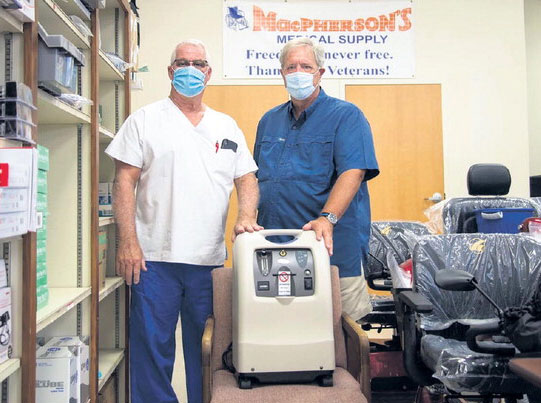HARLINGEN — For some residents, the city’s offered a gift of life.
At local hospitals, the city’s been helping COVID-19 patients recover through its donation of 50 oxygen concentrators.
At Valley Baptist Medical Center and Harlingen Medical Center, the donation has allowed the hospitals to discharge COVID-19 with the machines to help them recover at home, Josh Ramirez, the city’s public health director, said Monday.
“It’s highly needed for those recovering from COVID,” he said, noting the oxygen machines can help patients recover from the disease that infects the lungs, often causing severe respiratory problems. “It’s a life-saving item when you have difficulty breathing.”
Last week, city commissioners ratified the oxygen concentrators’ $54,750 purchase from a total of $3.7 million earmarked for the city through the federal Coronavirus Aid Relief and Economic Security Act, or CARES.
In July, the city donated 35 oxygen concentrators to Valley Baptist Medical Center and 15 machines to Harlingen Medical Center.
Meanwhile, Cameron County purchased 150 oxygen concentrators which it distributed among other county hospitals.
“They’re being utilized by the hospitals,” Ramirez said. “If a patient is in need of a concentrator, it’s assigned to the patient. Once the patient recovers, the hospital picks up the device. All equipment issued out to patients is maintained as required and disinfected. The intent is to reutilize the devices.”
The city’s response
Last July, the city donated the oxygen machines to the two hospitals amid a dramatic surge in COVID-19 cases that pushed the Rio Grande Valley’s hospitals over capacity, creating a health crisis.
“It’s a very positive thing the community did to support Valley Baptist and Harlingen Medical Center during the height of their hospitalization spike,” Mayor Chris Boswell said after commissioners ratified the oxygen concentrators’ purchase during last Wednesday’s meeting.
The machines’ donations allowed hospitals to send patients home with the units to complete their recovery, freeing up beds for critical patients, Ramirez said.
“Instead of having a patient in the hospital longer, these devises can be taken home and the person can continue to receive oxygen treatment at home, therefore relieving some beds for those in critical need of hospitalization,” he said.
While Cameron County’s COVID-19 cases continue dropping, the area’s hospitals stand ready for what Ramirez warned could become a “second surge.”
Like in El Paso, COVID-19 cases are soaring across much of the United States, pushing many hospitals over capacity.
“It allows us to have equipment ready as we prepare for a second surge,” Ramirez said.




